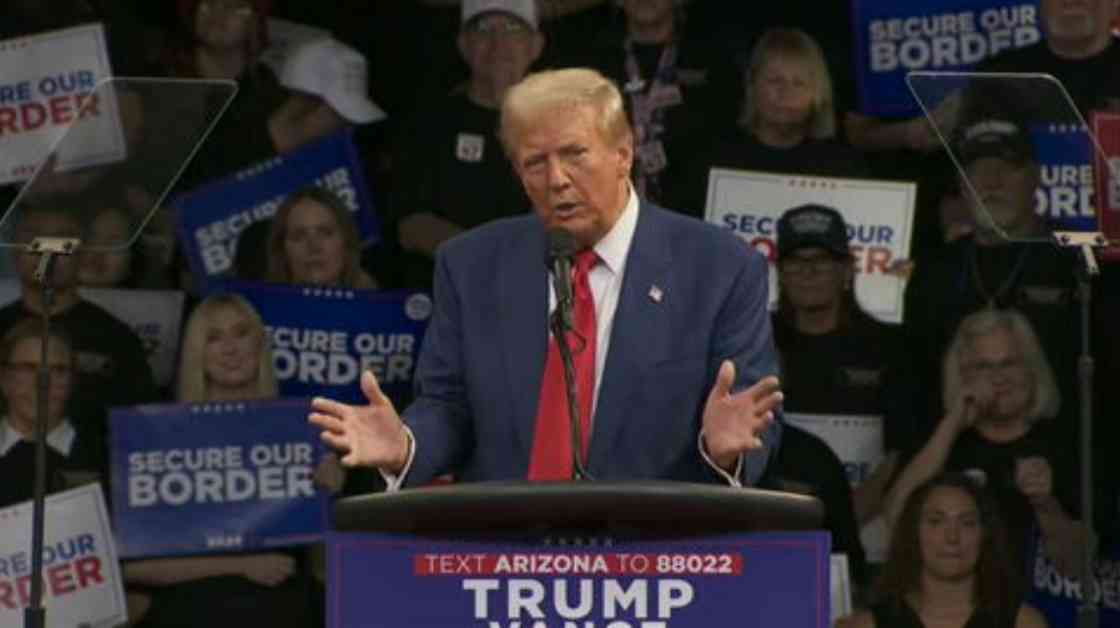Former President Donald Trump recently spoke at the Economic Club of Chicago, where he promoted the use of tariffs as a key economic strategy. Trump believes that imposing significant tariffs on foreign goods would benefit the United States by generating revenue for the government, protecting domestic businesses, and encouraging foreign companies to establish factories in the country.
During the interview, Trump expressed his fondness for tariffs, describing them as his favorite word and emphasizing their importance in his economic policies. However, mainstream economists argue that tariffs ultimately act as a tax on American consumers, leading to decreased efficiency and increased inflation.
Despite the moderator’s attempts to steer the conversation towards economics and business-related topics, Trump frequently diverted the discussion to familiar themes such as immigration, voter fraud, and transgender athletes. He also outlined his approach to using tariffs as a negotiating tool with foreign leaders, proposing high tariffs on Chinese goods and other imports.
Throughout the interview, Trump maintained his stance on tariffs, dismissing the concerns of economists and journalists who view them negatively. He asserted that foreign countries, rather than American consumers, bear the brunt of tariffs, a claim that has been widely discredited.
In addition to discussing economic policies, Trump touched on various other issues, including border security, fair elections, and transgender rights. He criticized the Biden administration for allegedly allowing dangerous criminals into the country and emphasized the need for stricter immigration policies.
Despite facing criticism for his unorthodox communication style and tendency to go off-topic, Trump’s interview was well-received by his supporters. Former White House aide Stephen Miller praised the interview as a significant moment in political leadership and economic discussion.
Overall, Trump’s promotion of tariffs and his emphasis on familiar themes during the interview highlight his unconventional approach to economic policy and governance. His unwavering confidence in the effectiveness of tariffs as a tool for negotiation sets him apart from traditional economic viewpoints, showcasing his unique perspective on trade and international relations.


